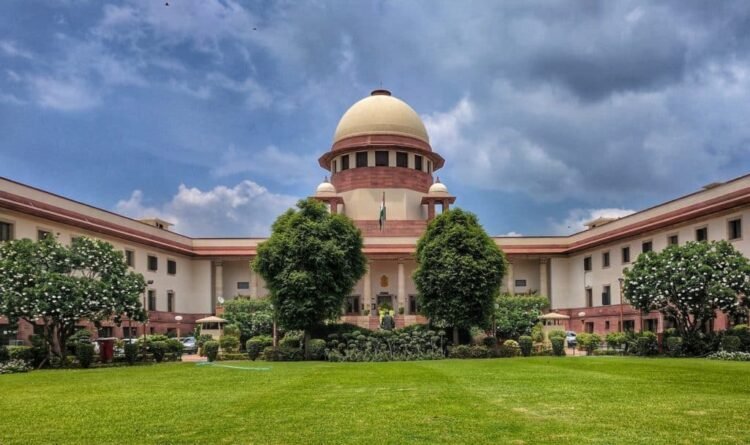Landmark Hearing Set to Shape the Future of Real-Money Gaming
NEW DELHI (India CSR): In a pivotal development for India’s online gaming industry, the Supreme Court of India has agreed to hear challenges to the Promotion and Regulation of Online Gaming Act, 2025, consolidating legal petitions previously filed in various high courts. On September 8, 2025, the apex court granted the Centre’s request to transfer these cases, aiming to prevent conflicting rulings and streamline adjudication. This move signals a critical moment for the real-money gaming (RMG) sector, which faces a blanket ban under the new law, sparking debates over regulation, economic impact, and digital innovation.
Consolidating Legal Challenges for Uniformity
The Supreme Court’s decision to centralize the legal challenges stems from the need to avoid fragmented rulings across India’s judicial system. A bench comprising Justices JB Pardiwala and KV Vishwanathan ordered the high courts of Karnataka, Delhi, and Madhya Pradesh to transfer all relevant case records within a week. This directive ensures that all existing and future petitions challenging the Online Gaming Act will be adjudicated by the apex court, fostering a cohesive legal framework. The Centre’s plea, filed on September 4, emphasized the risk of contradictory high court judgments, which could create regulatory uncertainty for an industry valued at over ₹15,000 crore annually.
The Online Gaming Act: A Controversial Ban
Enacted on August 22, 2025, the Promotion and Regulation of Online Gaming Act imposes a comprehensive ban on real-money games, defined as any online game where users deposit money with the expectation of winnings. The law has forced RMG platforms to suspend paid contests, pivoting to free-to-play models to comply. The legislation aims to curb gambling-like activities but has drawn criticism for its broad scope, which critics argue stifles legitimate skill-based gaming platforms like rummy, poker, and fantasy sports. The act’s passage has already triggered significant industry disruption, including workforce reductions at major firms like Mobile Premier League (MPL) and Games24x7.
Key Players in the Legal Battle
The legal challenges are led by prominent online gaming companies, including Head Digital Works, which operates the popular A23 Rummy platform, Bagheera Carrom, and Clubboom11 Sports & Entertainment, known for its fantasy sports platform Boom11. These petitioners, previously filing in high courts, represent a cross-section of the industry, with affiliations to bodies like the Federation of Indian Fantasy Sports (FIFS) and the E-Gaming Federation. Notably, major players like Dream Sports (parent of Dream11), Gameskraft, and Moonshine Technology (Pokerbaazi) have chosen not to contest the law, possibly to avoid prolonged legal battles and focus on compliance.
Industry Impact and Economic Stakes
The RMG sector, encompassing fantasy sports, rummy, and poker, has been a significant driver of India’s digital economy, employing thousands and attracting millions of users. The ban has led to immediate operational shifts, with companies suspending real-money contests and laying off staff. For instance, MPL and Games24x7 have reported workforce reductions of up to 20% since the law’s enactment. The industry also faces additional pressure from unresolved GST disputes, with the Supreme Court yet to rule on ₹2.5 lakh crore in tax notices issued to RMG and casino firms. These notices, combined with state-level bans in Tamil Nadu and Karnataka, have created a challenging environment for gaming operators.
Broader Context: GST and State Laws
The Supreme Court’s upcoming hearings extend beyond the Online Gaming Act, as it also deliberates on related issues. In July 2025, the court reserved judgment on cases involving GST levies on gaming companies and state legislation banning certain real-money games. Tamil Nadu and Karnataka, for example, have introduced laws restricting online staking games, which are under scrutiny for potentially overstepping central authority. These overlapping legal battles highlight the complex regulatory landscape for online gaming, balancing consumer protection, taxation, and industry growth.
What’s Next for Stakeholders?
The Supreme Court’s consolidated hearing is expected to clarify the legal standing of the Online Gaming Act and its implications for operators, investors, and users. Industry experts anticipate that the court may consider carving out exemptions for skill-based games, as opposed to chance-based gambling, a distinction that has been central to prior gaming disputes. For now, stakeholders await the court’s listing of the case, which will follow the transfer of high court records. Investors and companies are also monitoring platforms like GamingInvest for updates on market sentiment, while users can check service updates on platforms like A23 Rummy or Boom11 for compliance-related changes.
A Defining Moment for Online Gaming
As the Supreme Court prepares to hear these challenges, the outcome will likely shape the trajectory of India’s online gaming industry. A favorable ruling could revive the RMG sector, encouraging innovation and investment, while an upholding of the ban may push companies toward alternative markets or business models. With India’s digital gaming user base projected to reach 150 million by 2027, according to a 2025 NITI Aayog report, the stakes lij, the stakes are high for all parties involved.
(India CSR)







